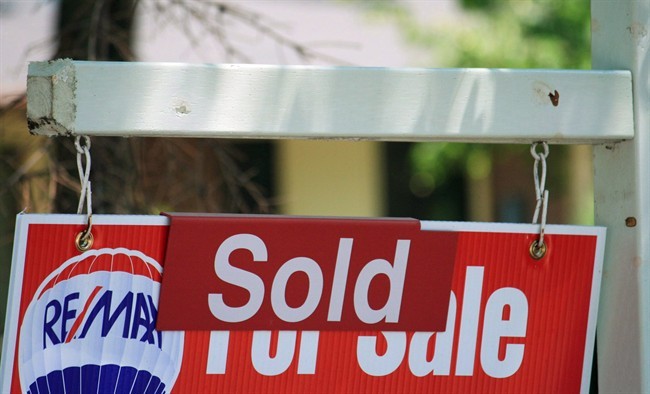Winnipeg‘s real estate market appears to be feeling the effects of COVID-19.

Peter Squire from WinnipegREALTORS says sales for the first week of April — normally the start of a busy time for agents — have fallen about 25 per cent and listings are down by half.
And Squire says it’s hard to say when things will turn around with both buyers and sellers waiting to see how things evolve in the coming weeks.
“This is the start of our spring market and we’re obviously not going to see the spring market behave as it normally does — this will be well below average for what we expect at this time of the year.”

However Squire says Winnipeg’s housing market came into the pandemic with momentum, following “probably our best first quarters, first three months, in our history.”
And while listings are down for now, he says there’s carry-over from 2019, and the slowdown in sales has yet to have an impact on prices
For now, Squire says he’s confident Winnipeg’s market can weather the storm.

Get weekly health news
“We have one of the most affordable and stable markets in the country,” he said.
“There’s still a lot for sale for those buyers who want to move for different reasons.”
A turn to technology
Late last month, a coalition of Manitoba-based realtors, including Winnipeg REALTORS told their members to stop holding open houses during the pandemic.
That’s left realtors relying on technology — applications like Zoom and FaceTime — to both show houses and connect with clients.
But potential buyers are still able to go into homes, as are home inspectors and appraisers, said Squire.
Allan Asplin, an agent with Winnipeg’s Judy Lindsay Team, says most agents are discouraging prospective buyers from entering homes unless they’re close to making a deal.
In that case both buyer and seller have to be in good health before a showing can happen, he said, and agreements are made around cleaning before and after buyers go through a home.
“Everyone’s been really good with that,” said Asplin.
“Everyone’s taking the necessary steps to be socially distancing and not put each other at risk.”
Asplin said video and virtual reality tours are becoming more common, and buyers can also watch video of a home’s inspection tour to see potential flaws.

“It shows all the bad things about the house that you wouldn’t normally see in the promo video,” he explains of inspection videos.
“So we go through and we look at the wiring, look at the furnace and stuff like that so that you have a good understanding of what the bad things are about the house as well.”
While sales may be down, Asplin said there is one silver lining for agents — only motivated buyers and sellers are reaching out right now.
“No one’s kicking tires,” he said. “The people who are coming out have to buy or have to sell.”

Questions about COVID-19? Here are some things you need to know:
Health officials caution against all international travel. Returning travellers are legally obligated to self-isolate for 14 days, beginning March 26, in case they develop symptoms and to prevent spreading the virus to others. Some provinces and territories have also implemented additional recommendations or enforcement measures to ensure those returning to the area self-isolate.
Symptoms can include fever, cough and difficulty breathing — very similar to a cold or flu. Some people can develop a more severe illness. People most at risk of this include older adults and people with severe chronic medical conditions like heart, lung or kidney disease. If you develop symptoms, contact public health authorities.
To prevent the virus from spreading, experts recommend frequent handwashing and coughing into your sleeve. They also recommend minimizing contact with others, staying home as much as possible and maintaining a distance of two metres from other people if you go out.
For full COVID-19 coverage from Global News, click here.
- Head-Smashed-In Buffalo Jump heritage site enjoys boost after shout out on ‘The Pitt’
- What is Nipah virus? What to know about the disease as India faces outbreak
- Pizza Pops contaminated with E. coli tied to 7 hospitalizations, data shows
- Pizza Pops E. coli recall grows as roughly a dozen products now hit









Comments